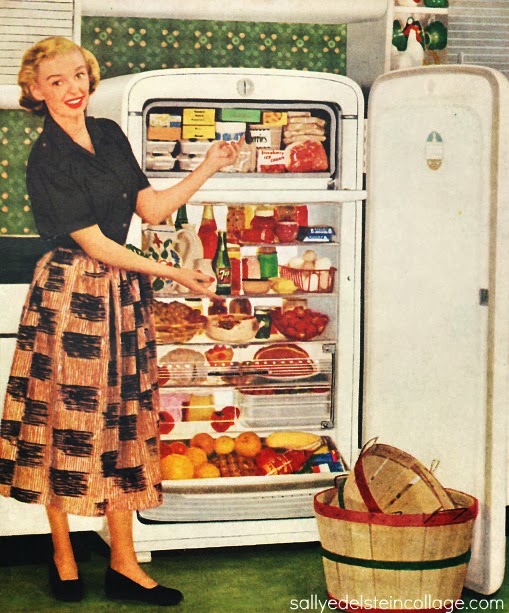Dateline: 4 February 2014
 |
| A farmer and his son listen to their new radio in the 1920s |
We are advised that the farm needs new machines; the residence must be newly furnished, and with electric lights and water-works, a piano, talking machine and radio, the kitchen must be sanitary, the diet must be varied and caloried and vitamined. The clothing must be as fashionable as in the town; the health regulations for the children must be adopted; the physical scale of living must be as good as that for any other range of people. The youth must join the clubs and go to college.
All this costs money, and in more than geometrical ratio. Yet the productivity of the land is capable of only limited increase. The selling-price of the produce may rise, but the buying-prices of manufactured supplies rise in at least equal ratio. The producing-power of the land cannot extend in proportion to the coveted increase in scale of living; and the farmer finds himself dealing with nature and living against a natural market, whereas many of those with whom he deals or at least whom he emulates live in artificial conditions and increase their income by arbitrary mass-action through organization and “understandings” rather than by the merit or skill or necessity of the service or the labor; and the increased cost of products arising from such unnatural control are charged back to the farmer and other consumers. The very statement of the case shows the money disadvantage under which the farmer works.
—Liberty Hyde Bailey
The Harvest of The Year To The Tiller of The Soil (1927)

























































































































6 comments:
This post identifies the compound problem facing rural folks very well. I appreciate this summary of what my wife and I face every day. For us, the solution is not so much homesteading, but homesteading within the context of a community. This distinction is lost on many an agrarian today (probably best to call them neo-agrarians, because the traditional agrarian understood the need for community quite well). If I recall you had a post on growing pumpkins that talked about this point...something I thought I would point out given the appropriately sobering thrust of today's post.
Hi Tom,
I think this comment by Liberty Hyde Bailey is incredibly insightful. I had to read it a few times to get the full understanding. It's good to know that you grasped the point of what he is saying.
And you are right about the importance of community in the agrarian ideal. Finding real (not virtual) community is not easy, especially with families separated by large distances and so few people living in one place for very long.
Indeed, modern life is so often built on abstractions and theories, taking it as a given that such things as an endless money supply, Iphones, a convenient, suburban lifestyle, a wazoo technological solution for any and everything, etc., are all normal and in line with life-as-it-is. When you challenge any of it, you're the one accused of being a Luddite, utopian, what have you. However, none of this deals with that very thing Mr. Bailey talks of here: limitations. WE DON'T WANT TO HEAR IT!
It is the agrarian idea, once again, that to me encompasses the least utopian, most realistic view of life-as-it-is. At some point, we'll have to deal with that reality one way or another.
Regards,
David Smith
Well said, David.
I used to have conversations with my peers who had also grown up within a farm lifestyle, and we would lament the fact that we were not able to live that life today (we work as engineers for a multinational industrial corporation). I finally came to a conclusion that is similar to the article's point. We could perhaps live the farm life of our great-grandfathers if we were willing to accept the same standard of living that they enjoyed. Few would be willing, and society and government would frown upon such "impoverished" living...
Jonathan Sanders
Mr. Sanders,your words: "Few would be willing, and society and government would frown upon such "impoverished" living..."
How right you are! After all, it's only "our" land and property as long as we make what our corporacratic rent seekers think is an appropriate profit, and in the way they deem best!
Regards,
David Smith
Post a Comment